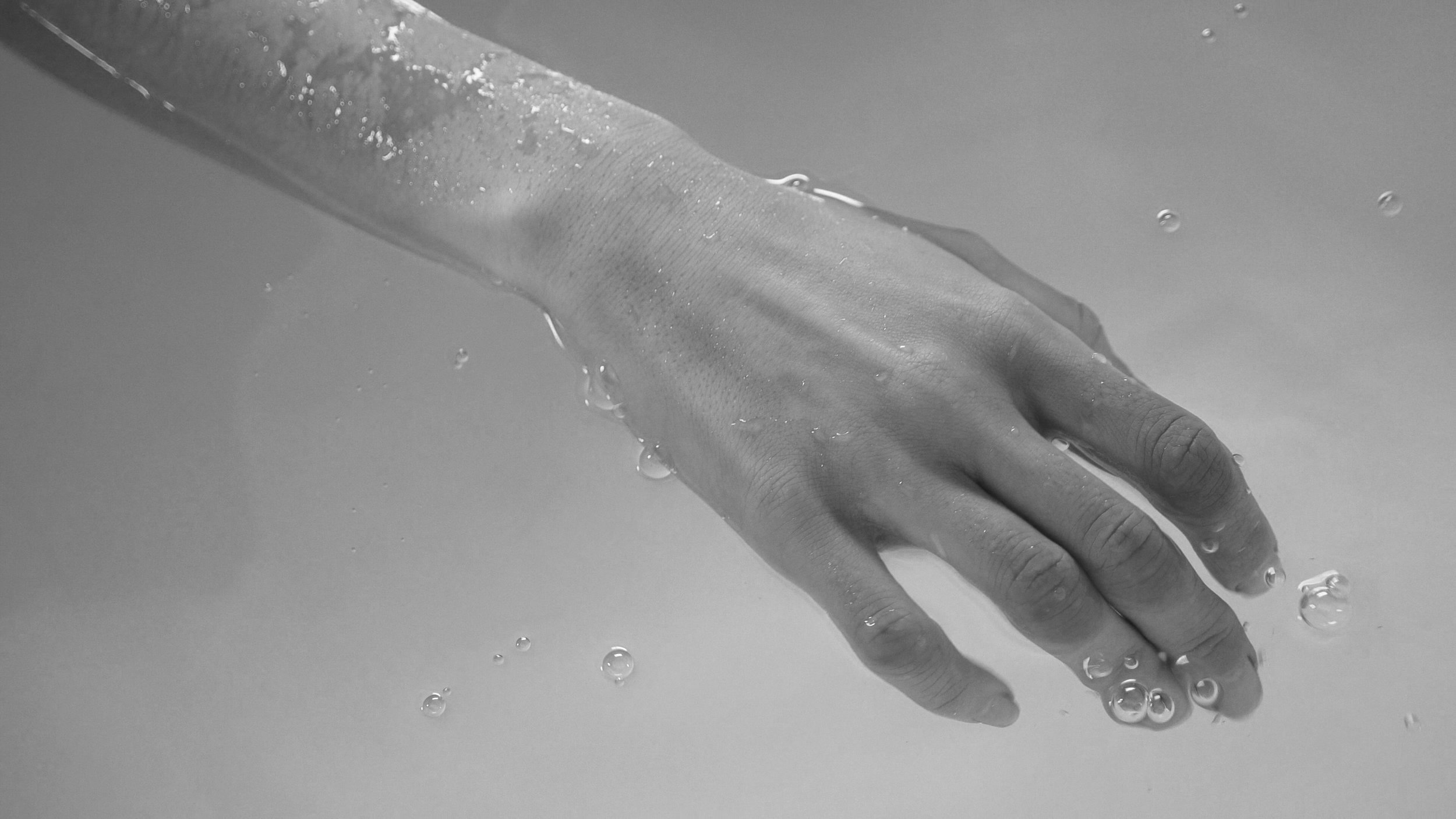Floating
James Pugh
The orange door before me looks like an art deco bank vault. Wearing nothing but ear plugs, I step into the sensory deprivation chamber: no light, no sound, other than the faint hum of the filtration system.
The foot-high water is salty, but not like the ocean. This salt is perfectly measured, just like everything in this meticulously controlled environment. The stillness strikes me. A shiver tingles down my spine despite the water’s warmth.
I seal off all light, step into a not-quite-blackness and lie on my back. I can’t help but wave my arms and legs in the water as if making a snow angel. Stillness doesn’t suit me. I find it tense, frozen. But the instructor said to be still. Two hours of dark silence, alone.
Generous helpings of epsom salt allow the body to float without effort. Not in the water, but not on top of it. My mind loses the sensation of warm or cold. Just floating. Even absent any light, the brain will never allow true blackness to set in. It has to fill in the visual gaps. Faint fireworks, the phantom image of the doorway before it sealed shut.
I look at my arm even though I can’t see it. Instead, I see its essence, a not-quite glow in the shape of an arm, effortless in the space outside of water and air, and in the space between. My arm exists, my mind exists, and the space exists. But there are no barriers. I let go of myself.
More fireworks, a silent Fourth of July. Brightly colored shapes appear around me and drift away. They move, or I move, up and around, ever forward, but so gently, as if Space Mountain took a Xanax. The lowkey space coaster gives way to a lazy river that gives way to an estuary.
A horseshoe crab, my great childhood fear, lies on the shore, its smooth back stuck in the sand. Its spindly legs reach for the ground it will never find, like a mutant turtle. No, this stingray-like thing is really just a big sad crab. One with a moderately poisonous spear. But I don’t mind. I just breathe.
Tilting my head up and down, my ears dip underwater. The noise of crashing waves and anonymous squawking birds dulls to a pulsing hum. I turn and submerge myself. Why does this feel so good? I wish I could hold my breath longer. I used to swim circles in our above ground pool in Pennsylvania. See how many times round I could go. Set up an obstacle course for myself, weaving through the ladder steps as one of my parents yelled, afraid I’d get stuck. I never did.
I ride a wave, lie in the swirling foam of its aftermath. As the tide takes me back out, I catch a glimpse of a young family: a mom and dad and a little girl splashing in the tide. Clinging to the mom’s legs is a toddler with a shock of blond hair, almost white. Like mine before I grew up. A perfect little family. The current tugs at my legs, as if I’m running effortlessly with the seawater. The great expanse overtakes me and I think of that boy who’s afraid of the sea.
My parents love telling the story of my meeting the ocean. I was two. Every day we’d go to the shore, and they’d take me down to the edge of the water. As the tide pulled back, I’d joyfully scuttle toward the sea. Then my eyes widened as the tide came back in, and I’d scuttle back to them, testing my motor skills, playing tag with the tide like the sandpipers my sister would chase. On our last day there, they took me to the edge of the shore to “say goodbye to the ocean.” Again, I toddled towards the waves. This time I let the tide hit my toes and I giggled with glee. I splashed around, wiggled my toes as the water surrounded me, perfectly content. I didn’t want to leave.
A metallic knocking snaps me out of this non-memory, the not-so-gentle reminder that my float time has ended.
James Pugh is a playwright and nonfiction writer based in Los Angeles. He earned a BFA from SUNY Purchase's Dramatic Writing Conservatory. His plays have been performed at Playwrights Horizons and TADA Theatre in New York City. His work examines mental health with humor and whimsy.


